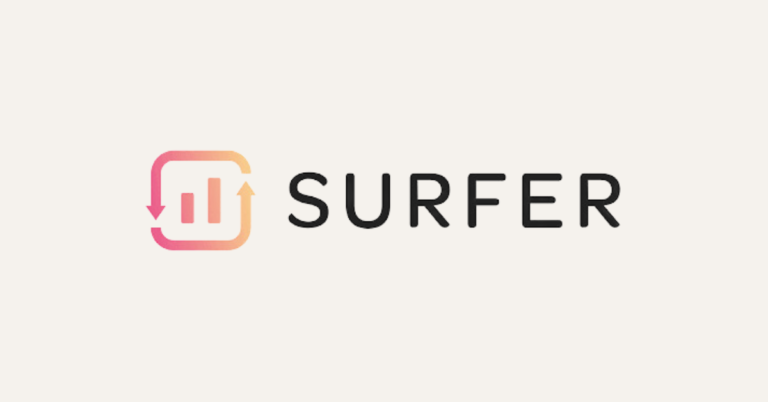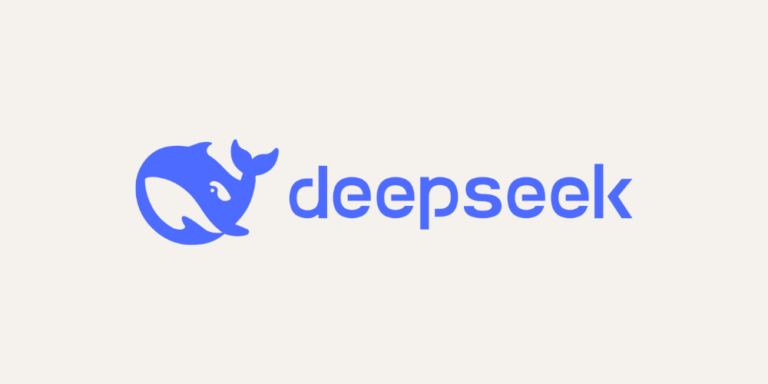Website Ranking Checker – Check Your Google Ranking
Here are the most important things to understand about website ranking, including tips for improving your site’s visibility rate and overall website visibility.
- Search engines rank pages based on relevance, quality, and user value—focus on helpful content.
- High rankings boost traffic, trust, and visibility. Use smart keywords to attract the right audience.
- Track rankings regularly with tools like Google Search Console to find improvement areas.
- Strong SEO needs quality content, great UX, technical fixes, and backlinks—work on all together.
- Create useful content, optimize pages, and build links. Prioritize mobile for better indexing.
- Avoid thin content, keyword stuffing, and missing search intent. Always focus on user needs.
Website ranking is all about how high up your site appears on the search engine results pages (SERPs). With smart content strategies and focused SEO best practices, I guide you to higher search rankings. You’ll improve your online visibility, drive more relevant organic traffic, and position your organization as an industry thought leader.
I use keyword research to find the terms your audience searches for and then I optimize your content to match. To complement my Content Strategy, I will ensure your website’s structure and technical elements are search engine friendly.
I’ll write you persuasive words that make people interested in what you have to offer. My informative copy will increase your search ranking and have your users returning for their next adventure!
Partner with us to take your website to the next level and promote it to your audience.
What is Website Ranking?
Website ranking indicates the position of your website in search engine results when someone searches for specific terms. Your website ranking is directly related to how easy it is for people to find you online and your overall website traffic. The further down in the rankings you go, the fewer visitors your site is likely to have.
Website ranking is a key indicator for how relevant, trustworthy, and authoritative search engines believe your site to be. It’s not a simple number, it’s nuanced and continuously varies with a host of dynamic factors.
1. Defining Search Engine Position
Search engine ranking is the position of your webpage on search engine results page, or SERPs. When your page ranks at the top of search results, users are more likely to click on it and land on your site.
In reality, search engine algorithms rank you based on a ton of various factors. Remember, your rank is only as good as whatever someone searches to find you.
2. How Search Engines Rank Pages
Search engines find and organize pages by crawling the web, indexing information, and deciding how good and useful the content is. They rank your page based on the rank of other pages across several factors.
These factor in things like keywords, backlinks from other sites, and engagement like time on page and bounce rate. At the end of the day, search engines are trying to serve the most relevant and useful answers to their users’ questions.
These algorithms are constantly changing in order to improve the quality of search results.
3. Beyond Keywords: Algorithm Nuances
SEO Tip #2 – Search engines are about much more than just keywords. They use it to understand what people are truly searching for and if your content is relevant. Quality is the most important thing.
Search engines are always looking for content that serves the searcher’s intent best. They can keep track of user behavior on your website. This means identifying how long visitors remain on your site and if they are an immediate bounce.
E-E-A-T is an acronym that stands for Experience, Expertise, Authoritativeness, and Trustworthiness. To put it another way, these factors are becoming more and more important in website ranking.
4. Understanding Ranking Factors Evolution
What gets you to the top is subject to change as search engines refine their algorithms. Something that used to be very relevant no longer holds weight like it used to.
If you want to maintain your website’s high ranking, you have to stay on top of these updates. This is why keeping up with the latest changes and industry standards is absolutely critical.
5. Ranking vs. Visibility: Key Differences
Ranking refers to the position of your webpage in the search results for a particular keyword. Visibility is the percentage of overall search visibility your website has when compared to your competitors for all relevant search terms.
Ranking high for a handful of terms may be great, but it doesn’t make you easily discoverable. Overall visibility measures how many unique searches your site shows up across.
Why Your Ranking Matters Deeply
In a world that is increasingly more connected online, knowing why their Google ranking is so significant can make all the difference for your company. Google’s goal is to provide users with the highest quality content to answer their search queries and build a positive online ecosystem. Your SEO ranking directly results in the amount of organic traffic you receive and how many potential customers can find you.
It determines how trustworthy your brand looks and how much users trust you. It provides you a huge leg up against your competition in the online search space. It helps you test the effectiveness of your different marketing tactics and measure your ROI.
Driving Meaningful Organic Traffic
When your website wins that coveted high ranking, you earn the most engaging, cost-effective, and qualified traffic from search engines. This is the best type of traffic to have as these are individuals who are currently searching for what you provide. The highly targeted organic traffic you earn can drive valuable leads, sales, and other important business objectives.
That’s why keyword targeting matters — you want to attract visitors who will genuinely engage with your work. Google wants to rank the content that best answers everything users want and provides the most complete answers. On average, posts with around 1,890 words rank on the first page because Google rewards reputable reporting by valuing in-depth content.
Building Lasting Brand Credibility
The better your website ranks, the more credible and trustworthy your brand will appear to users searching for your cause. Humans are hardwired to trust whatever ranks first. This trust can easily become customer loyalty and make your customers ambassadors for your brand.
It’s especially important that you maintain your brand’s message and voice across all your online channels. Earning links from other authoritative websites builds credibility which tells Google that your content deserves to rank. Google takes those votes and looks at how authoritative or relevant your links are.
Gaining Sustainable Competitive Edge
That’s because ranking high provides a long-term competitive advantage over anybody who might be trying to steal your traffic in organic search. Being able to outrank them for critical keywords will help you drive in a lot more traffic and potential customers. A well-executed SEO strategy always keeps you ahead in the long run.
That’s why ongoing monitoring and adjustment of your SEO efforts is crucial to maintaining your competitive advantage. Google wants to rank pages that have the most up-to-date content for these types of subjects.
Measuring Real Marketing Impact
You can track your website ranking to determine the effectiveness of your marketing efforts. Tracking the rank of your keywords, along with the total organic traffic you’re bringing in, provides valuable context. You’ll be able to adjust your SEO strategies based on this data, saving you time and increasing your ROI.
As your program gets off the ground, ensure you are identifying specific goals and measuring your success. Google’s ranking systems are designed to help sort through hundreds of billions of webpages and other types of digital content. They provide the best, most personalized, most relevant results at lightning speed, often on that coveted first page.
Checking Your Website’s Position
Staying on top of what position your website ranks in is extremely important to understanding the success of your SEO efforts over time. It can help you identify where improvement is necessary, monitor your progress, and adjust your approaches over time.
There are a variety of options available for checking your website’s position, ranging from special SEO tools to conducting manual search queries. Keep in mind, more than 90% of online experiences begin with a search engine, so having a handle on where you stand is important.
Utilize Rank Tracking Tools
Rank tracking tools automate regular checks of your website’s position for all the keywords you want to track. These tools provide you with historical data, as well as visibility into how your rankings are changing over time.
They are able to monitor your website’s position among other search engines and geographical locations. A good rank tracker will enable you to keep your finger on the pulse of your keyword position.
With one glance, you can notice any change with your position. Tools such as Ahrefs or Keywords Explorer are incredibly helpful for keeping track of what keywords you rank for and how to increase your rankings.
Perform Manual Search Checks
This kind of search visibility checking means going to Google or Bing and manually searching for relevant keywords to see where your website shows up. This provides you an at-a-glance overview of where your website ranks for those keywords.
To ensure you’re seeing the most accurate results, run these checks using a variety of locations and devices. Manual checks are time-consuming, but they are useful for spot-checking your site’s position.
Alternatively, you can make use of a free tool like SEO.AI to do a quick diagnosis.
Analyze Search Console Insights
Google Search Console is one of the most important tools for monitoring your rankings and search performance. So, you are able to see exactly what keywords your website is currently ranking for along with valuable information such as clicks, impressions, and average position.
Analyzing this data regularly helps you find opportunities to improve your site’s ranking. Get to know your website’s strengths and weaknesses.
Create informed decisions with that insight that improve its collective performance.
Core Elements Shaping Your Rank
Website ranking is shaped by a handful of core elements. Some of the other elements that shape your rank besides content are content quality, user experience, technical SEO, and backlinks. They combine with one another to shape search engine ranking algorithms.
By optimizing these elements, you’re increasing your website’s chances of ranking higher and being visible to your audience. So it goes without saying that you should always take a holistic approach to SEO that touches on all core elements.
Content Quality Originality Signals
In fact, content quality and originality rank as the top 2 most important factors. Search engines are looking for content that is accurate, entertaining, compelling, and original. That’s right—quality, authoritative, authentic content is the number one driver of your search engine rankings.
It goes without saying, but duplicate or low-quality content can negatively impact your website’s ranking. Write deeply researched, clearly written, creative content that provides a unique and comprehensive view to a topic. An ideal title is one that clearly explains what the page is about, and an ideal meta description captures the essence of the most relevant parts.
User Experience Engagement Metrics
User experience (UX) and engagement metrics play a large role on how a website ranks. Search engines consider metrics such as bounce rate, average visit duration and page views. Creating a good user experience is ultimately one of the best ways to rank your site.
Download Improve your website’s usability, use attractive design, good content to get people to dive deeper and remain on your site longer.
Technical SEO Health Status
Technical SEO health is often the unsung hero of content marketing. It’s about fine-tuning your website layout, improving site speed, and making sure you’re mobile-friendly. When technical SEO issues rear their ugly heads, they can prevent search engines from crawling and indexing your website properly.
Perform technical SEO audits on a regular basis to identify issues and correct them.
Backlink Profile Quality Authority
The quality and authority of your backlink profile is what truly counts. Relevant, high-quality and contextual backlinks from authoritative high-DA sites will always give your website the biggest ranking boost. Plus, backlinks from spammy or low-quality sites will actually penalize your ranking.
Create a relevant, authoritative backlink profile through honest link-building practices.
Mobile Usability Site Speed
Mobile usability and site speed have been ranking factors for years. Search engines favor sites that are conducive to the mobile experience and which load quickly. A lack of a mobile experience or bad site speed will hurt your website ranking.
Boost Core Web Vitals scores by optimizing your website for mobile devices and improving site speed.
Boost Your Ranking Ethically Now
When you’re looking to enjoy successful, long-term website ranking, you aim for ethical SEO practices. Implementing these practices ensure that you’re building trust with search engines, as well as your audience.
When you focus on delivering value and playing by the rules set by search engines, you’re laying the groundwork for real, long-lasting growth and visibility.
Create Truly Valuable Content
Creating valuable content that meets people’s needs is an essential part of any successful SEO strategy. We know you’re creating awesome multimedia, helping your members tell their story, and generating awe-inspiring campaigns that raise awareness and offer real solutions.
When you provide content that meets these criteria, you attract visitors, earn valuable backlinks from other sites, and improve your website’s ranking in search results. Significant keyword research should go into figuring out the new topics your audience is looking for and, more importantly, searching around.
Google has made it clear that they prioritize helpful, informative, engaging, and trustworthy content, so thoroughly research your work and pull from reputable sources.
Optimize Key On-Page Elements
On-page SEO is all about optimizing your content and HTML source code of your website pages to help you rank higher. Important factors are title tags, meta descriptions, header tags, and keyword targeting.
By optimizing these on-page elements, you make it easier for search engines to understand the content and relevance of each web page. Integrate keywords that your users are searching for organically.
Do not keyword stuff, which will definitely hurt your ranking.
Build High-Quality Relevant Links
Developing relevant, authoritative links back to your content is one of the most important aspects of a good SEO strategy. Backlinks from high authority domains pour authority into your website and will increase your website’s ranking significantly.
Instead, focus on earning these links organically by developing creative content that appeals to a broad audience who will share it and link to it.
Enhance Site Technical Foundation
Getting your site’s technical foundation in order is a huge part of SEO. This means increasing your page load speed, ensuring your site is mobile friendly, and enhancing your overall website architecture.
Better technical SEO has all kinds of SEO benefits. A solid technical foundation ensures that search engines can easily crawl and index your website.
Avoid These Ranking Pitfalls
Protecting against these common ranking mistakes matters for your website’s search engine optimization. These mistakes can have a detrimental effect on your site’s rank and overall visibility. We’ll look at the most common pitfalls that can lead to penalties from search engines, costing you valuable traffic data and potential visitors. Steering clear of these issues goes a long way in maintaining your website’s competitive ranking position.
Recognizing Low-Value Content Dangers
Thin content and aggregation quality content is some of your worst ranking pitfalls. This can be anything from having problematic duplicate content, thin content to content that’s irrelevant.
Search engines reward quality, unique content that truly serves the user. This shouldn’t be confused as an opportunity to create low-value content. Shift your efforts towards producing content that provides genuine worth.
For instance, creating original content that offers fresh insights, solves specific problems, and provides detailed analysis is crucial for avoiding ranking pitfalls.
Understanding Over-Optimization Risks
It’s true that over-optimization can be equally detrimental to your website’s ranking. This falls under the umbrella of black hat SEO like keyword stuffing, spammy link building, and more dirty tricks.
Search engines look to punish sites that do this. Paid links, backlinks that have been bought specifically for the purpose of affecting rankings, are a violation of Google’s Webmaster Guidelines.
As a rule of thumb, it’s always better to use keywords more naturally. Don’t try to game the system with SEO blackhat techniques.
For instance, spamming the same exact anchor text across hundreds of backlinks will do more harm than good for your SEO strategy. Rather, leverage diversity in anchor text like “Yourwebsite.com”, “Yourwebsite”, “Your Website”, etc., to prevent an over-optimized footprint.
Ignoring Critical User Intent
Overlooking user experience will hurt your website ranking. For search engines, matching the content with the intent behind the user’s search is essential.
This means your website needs to produce content that matches user intent and provides valuable insights. Ignoring Google’s Helpful Content Guidelines is a major mistake to be making in your SEO strategy.
By putting the energy spent on chasing Google’s latest guideline back into understanding user intent, you can maximize your organic traffic.
Connect Ranking with User Value
Long term success means getting your SEO strategy in alignment with user intent. Best of all, search engines are getting smarter by the day, rewarding sites that provide a positive experience and relevant value. The bottom line is to deliver maximum value to your users.
You’ll be on your way to increasing reader engagement, loyalty, and your website’s place on search results rankings. Consider SEO as an opportunity to improve the overall user experience on your website. It’s not because it’s some sort of gimmick to game search engine algorithms.
Align SEO with User Satisfaction
Aligning SEO with user satisfaction is essential for achieving long-term, sustainable results. With each algorithm update, search engines continue to reward top websites that focus on delivering excellent user experiences and meaningful content. Instead, concentrate on producing valuable content that speaks directly to your potential customers’ pain points and enhances your website content relevance.
This year, make it a point to track user value and iterate on your experience based on what users are saying. If you own a food recipe site, constantly build rapport with your users. Notice their comments requesting recipes with fewer steps or minimal prep time, which can help improve your search engine rankings.
Craft your narrative around fulfilling these asks. Creating them will not only increase user value, but it should increase your rankability and improve SERPs as a result. Google’s Quality Guidelines indicate that expertise and authoritative sources are crucial, particularly for YMYL topics. So ensure that your content is thoroughly fact-checked and authoritative.
Focus on Long-Term Engagement
Emphasizing long-term user engagement is a critical component of sustainable search engine optimization (SEO). When search engines value quality, they reward those top websites that provide experiences keeping users engaged and returning. Produce content that is educational, inviting, and tailored to your specific public to improve your website’s visibility rate.
Creating a culture of engagement is key to enhancing your domain’s authority. Building a community around your website fosters user engagement, essential for retaining visitors. For example, a fitness website could include workout videos, nutrition guides, and forums where users can share their progress and ask questions, enhancing overall website visibility.
Utilizing bulleted and numbered lists can significantly improve readability. Google favors content organized this way, which can impact your keyword rankings. Remember that if your website doesn’t load in under 3 seconds, you could lose more than half of your potential visitors, affecting your traffic data and overall SEO strategies.
The Future of Search Ranking
As the search landscape gets more competitive, it’s important to understand the trends that are shaping the future of search ranking. These changes require you to continue to hone your craft and constantly evolve your approach just to keep pace.
SEO search engine algorithms are getting smarter. Understand how the world is changing, and what new technologies are being brought into the search sphere, so you can continue to best optimize your site and content.
AI’s Growing Role in Search
This new artificial intelligence technology has quickly become ingrained in the algorithms that search engines are using to rank websites. AI algorithms work to understand what users really want when they search, personalize the results you see, and filter out spam.
To remain on the cutting edge of optimization, we must establish a user-first experience and deliver relevant, high-quality content that genuinely fulfills shopper intent. Because at the end of the day, AI-generated content or not, it’s the most helpful, relevant content that gets rewarded.
Increasing E-E-A-T Importance
The new E-E-A-T — a stand-in for Experience, Expertise, Authoritativeness, and Trustworthiness — is more important than ever. Search engines are gravitating towards websites that prove these attributes by the way they express it via their content and their domain authority.
Further, developing your E-E-A-T means producing excellent content, gaining backlinks from authoritative websites, and having a positive online reputation. Building E-E-A-T into your content is critical to earning the trust of your readers—and search engines.
Voice Search Ranking Considerations
With voice search increasing in popularity and use, this further transforms what you need to consider when preparing for a successful SEO future. Voice queries are usually longer and more conversational than their typed counterparts.
Optimize your content for voice search by targeting long-tail keywords and directly addressing the questions your customers are likely to ask. Supplying direct, straightforward answers to questions is more important than ever for winning voice search traffic.
Conclusion
You understand how website ranking works! Most importantly, you understand why it all matters. You may have learned how to test to see where you’re at. Second, you know what it takes to rank better.
Last month, I outlined some simple steps you can take to boost your ranking. Plus, you learn what to stay away from so you don’t damage your site. Keep in mind, your #1 ranking leads directly to the exact, specific content people are seeking. Because search is shifting, your goal should be to provide genuine value.
Want to start making your site more discoverable? Implement these changes and start seeing your traffic soar!
Frequently Asked Questions
What exactly is website ranking?
Website ranking is the term used to describe where your website appears on a search engine results page (SERP) for targeted keywords. The lower your ranking, the less visible you are, affecting your overall website visibility and the amount of traffic you will receive. It’s crucial for getting found by internet users actively searching for what you provide.
Why is my website’s ranking so important?
The higher you rank in search engine optimization, the more organic traffic you get, leading to more potential customers. Ultimately, higher keyword rankings result in greater brand recognition and revenue, representing your overall website visibility and presence on the web.
How can I check my website’s current ranking?
Utilize SEO tools such as Google Search Console, Semrush, or Ahrefs to monitor your keyword rankings and check rank. These tools can provide much more exact and holistic ranking data, allowing you to assess your website’s overall visibility and content relevance.
What factors influence my website’s search ranking?
There are dozens of factors that affect ranking, such as the quality of your content, backlinks, and website speed. Google’s search algorithms consider these elements, alongside user engagement and mobile-friendliness, to determine the most relevant and valuable results for internet users.
How can I improve my website’s ranking ethically?
Create high-quality content that aligns with the user’s search intent, enhancing your website’s visibility rate. Develop natural and influential backlinks from authoritative domains to improve your keyword rankings. Ensure your website is optimized for fast load times and mobile usage to boost overall website visibility.






